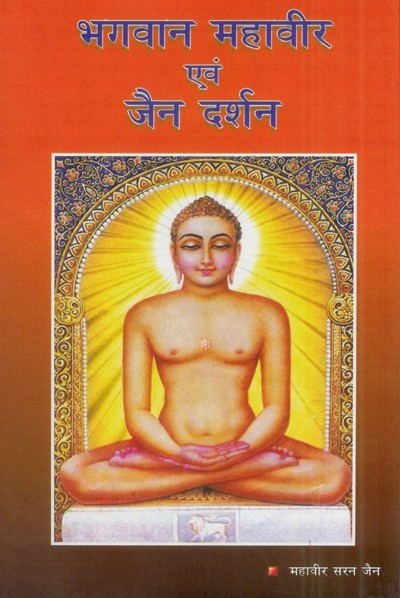Karmic bondage occurs as a result of the following two processes: āsrava and bandha. Āsrava is the inflow of karma. The karmic influx occurs when the particles are attracted to the soul on account of yoga. Yoga is the vibrations of the soul due to activities of mind, speech and body. However, the yoga alone does not produce bondage. The karmas have effect only when they are bound to the consciousness. This binding of the karma to the consciousness is called bandha. This is the process by means of which Karmas become absorbed and assimilated into the soul like water mixing with milk.
The karmic bondage occurs as a result of various causes of karmic influx (कर्म-आश्रव) and karmic bondage (कर्म-बंधन). All Influx of Karma into the soul may or may not be followed by or become bondage, but bondage is always preceded by Influx. All bondage must be preceded by entrance or influx as without influx the Karma cannot bind the soul.
It has been said earlier that when a living being is engaged in some activity, the action is taken by the body, speech or mind or some combinations of these agencies. These actions and accompanying passions induce vibrations in the soul. These vibrations in the soul space are called “yoga”. The meaning of the term “yoga” in this context is distinct from the other meanings of “yoga” like meditation or concentration or unity or mixture or contact. In case vibrations result in activity of the body, it is called Kāya Yoga; if it manifests in activity of the speech, it is called Vacana Yoga and if it results in thought process it is called Mano Yoga.
कायावाड्.मनः कर्मयोगः।
Kāyavāṅgamanaḥ karmayogaḥ
(Acharya Uma swami: Tattvarth Sutra, 6/1)
The becoming vibration in space-points of the soul with the help of body, speech and mind; material bodies penetrate towards those space-points of soul. The potential Karma Pudgala (Karma vargaṇās) out of the other infinite number of Pudgals in the world is attracted into the soul as a result of these vibrations or yoga and this is termed as Influx. In other words, the karmic influx occurs when the material-particles are attracted to the soul on account of yoga.
However, the yoga alone does not produce bondage. The karmas have effect only when they are bound to the consciousness. This binding of the karma to the consciousness is called bandha. Out of the many causes of bondage, passions are considered as the main cause of bondage. The karmas are literally bound on account of the stickiness of the soul due to existence of various passions or mental dispositions or passionate intention behind the activity of body, speech and mind.
Whenever a soul experiences this or that mental state at that very time it gets bound by a corresponding good or evil karmas. Whoever is careless about his physical activities and speech and covetous of wealth and woman accumulates Karmic dirt of attachment and aversion. Whatever impure modifications the Self engenders (by relinquishing his own pure nature) to those modifications, he becomes the agent (कर्ता). The soul, in mundane state, being the agent of its own modification constituted out of its own substance, is bound up with or released from karmic dust. The karmic particles of sentience -obstructing-karma etc. get absorbed in to soul when it indulges with karmas. It has been said that the actions of mind, speech and body are the instrumental causes or auxiliary causes in the vibratory activity of the space-units of soul. After this, the vibrating soul attracts karmic dust or karmic particles (कर्म वर्गणाएँ) from the surroundings. In scientific language it can be termed as “molecules” (the smallest particle of matter that is the same chemically as the whole mass.) or “subtle matter energy particles”. In other words, the soul, which has space-points, when defiled by infatuation, attachment and aversion, is clung by karmic dust; and that is karma-bondage. The passions (attachment, aversion, anger. ego, deceit, greed etc.) are the cause for the duration and intensity of karma bondage.
परिणमदि जदा अप्पा सुहम्मि असुहम्मि राग दौस जुदो।
तं पविसदि कम्मरयं णाणावरणादिभावेहिं ।।
Pariṇamadi jadā appā suhammi asuhammi rāga dausa judo.
Taṁ pavisadi kammarayaṁ ṇāṇāvaraṇādibhāvehiṁ...
(Acharya Kunda: Pravachanasar - 187)
(When the soul, under the influence of attachment or aversion develops itself into auspicious or inauspicious resultant of consciousness, the Karmic-dust pours into it in the form of sentience -obstructing-karma etc.) When this soul forgetting itself, indulges in all sorts of impure deeds and feelings of delusion, attachment and aversion, fruition of karma is called conventional cause thereof. In fact, Karma does not force our souls to indulge in these demerits. Attachment is generated for desirables and aversion is generated for undesired. These very transformations are the extrinsic mode of the soul; this is the attraction of self in other self. This is the transformation. This is the bondage of soul in defiled mode. This is modification. This is the bondage of soul in extrinsic mode.
The form of soil is modified into vassal via potter as an auxiliary cause or as an external efficient cause. In the same way, karmic-molecules are modified in the form of physical substance due to wrong belief and attachment -aversion etc. of jiva. As a potter thinks - about himself that he makes pitcher - remains in this mode of thinking, similarly, getting the help of fruition of physical karmas, being affected by attachment and aversion etc., the soul keeps on changing into extrinsic modes (vibhāva). The soul and karmic matter both getting entangled with each other come into defiled mode, like a potter and pot.
 Dr. Mahavir Saran Jain
Dr. Mahavir Saran Jain
